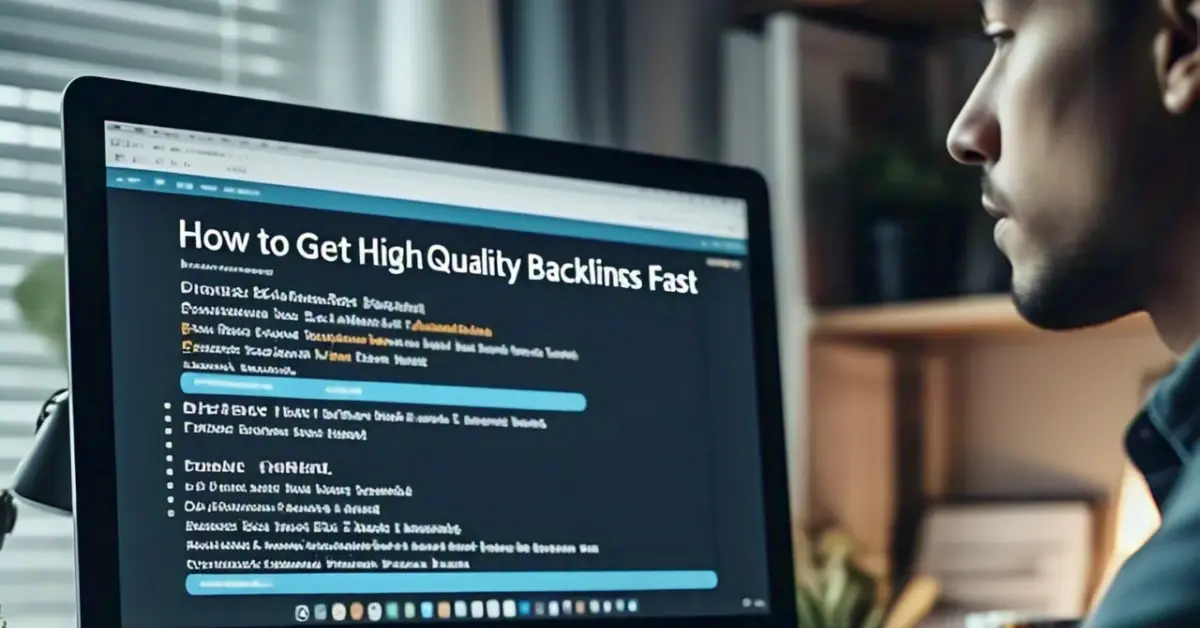You need to approach link building with a strategic mindset to enhance your website’s SEO performance. Following the dos of link building, such as creating high-quality content and building relationships, can significantly improve your site’s authority. Conversely, avoiding the don’ts, like purchasing links or engaging in spammy tactics, can protect you from search engine penalties that could jeopardize your visibility. In this post, we will explore the best practices to help you build a strong and ethical link profile, ensuring your website thrives in search engine rankings.
Key Takeaways:
- Quality over Quantity: Focus on acquiring high-quality backlinks from reputable websites rather than just aiming for a large number of links.
- Diverse Link Sources: Strive to obtain links from a variety of sources and domains to create a natural link profile.
- Avoid Spammy Techniques: Steer clear of black-hat SEO practices like link farms or buying links, as these can lead to penalties from search engines.
Understanding Link Building
Before venturing into the intricacies of link building, it’s imperative to grasp the fundamental concepts that govern this important aspect of SEO. A steadfast comprehension of link building can significantly enhance your website’s visibility and authority in the online hierarchy.
What is Link Building?
Link building is the process of acquiring hyperlinks from other websites to your own. These links serve as pathways that allow users to navigate between different web pages, contributing to the overall structure of the internet. In SEO, links are a vital component, as they signal to search engines that your site contains valuable content worthy of citation.
Furthermore, link building isn’t just about quantity; quality matters immensely. A link from a reputable source can have a more significant impact on your search engine ranking than numerous links from lesser-known sites. Establishing genuine relationships within your industry can lead to organic link-building opportunities that bolster your website’s authority.
The Importance of Link Building for SEO
Understanding the significance of link building for SEO can’t be overstated. Links are one of the primary ways search engines such as Google determine a site’s ranking. When a trusted site links to yours, it acts as a vote of confidence, suggesting to search engines that your content is reliable and relevant.
In fact, a well-executed link-building strategy can drastically increase referral traffic. When users discover your site through backlinks on other websites, it can lead to more conversions and improve your site’s overall performance in search results. As such, cultivating a network of quality links should be a key component of your SEO strategy.
Types of Links: DoFollow vs. NoFollow
NoFollow links are those that contain a specific HTML attribute indicating to search engines not to follow them. This means that they do not pass on “link juice,” or SEO benefits, to your site. However, they still can play a role in your link-building strategy, driving traffic and increasing visibility.
| DoFollow Links | Links that pass SEO benefits to your site, helping improve search rankings. |
| NoFollow Links | Links that do not contribute to SEO rankings but can drive referral traffic. |
| Anchor Text | The visible, clickable text in a hyperlink, relevant to the target page. |
| Reciprocal Links | Links exchanged between two sites, often for mutual benefits. |
| Contextual Links | Links placed within the body of content, highly regarded by search engines. |
In addition, focusing on a balanced mix of both DoFollow and NoFollow links can create a more organic link profile for your site. Each link type has its unique advantages, and utilizing them appropriately can enhance your overall strategy. Establishing quality connections with other webmasters could yield various link opportunities, thereby enriching your digital presence.
- DoFollow Links: Boost SEO authority.
- NoFollow Links: Drive referral traffic.
- Anchor Text: Increases relevance.
- Contextual Links: Highly favored by search engines.
- Reciprocal Links: Offer mutual benefits.
After cultivating your link-building efforts, you may witness substantial growth in not only your organic traffic but also your site’s overall credibility in your niche. By diversifying your link-building approach, you can effectively navigate the complex domain of SEO.
Dos of Link Building
Now, when it comes to link building, there are several fundamental practices that you should incorporate into your strategy to ensure effective results. Following these dos will not only enhance your SEO score but will also improve your overall online presence. Let’s research into the necessary aspects to focus on.
Focus on Quality Over Quantity
About link building, the age-old adage “quality over quantity” rings true more than ever. It’s necessary that you prioritize acquiring links from authoritative websites relevant to your niche rather than aiming for a high volume of low-quality links. High-quality links can significantly boost your domain authority, while low-quality links can harm it. Therefore, you should aim for a select few well-placed, relevant links that demonstrate trustworthiness and expertise in your industry.
Additionally, when you seek out links, consider the context of the link as well. A link from a reputable source that is contextually relevant to your content holds much more value than multiple links from random websites. By focusing on quality, you’re more likely to attract an audience that values your content and can benefit from your expertise.
Utilize Guest Blogging Effectively
Along with building high-quality links, you should take full advantage of guest blogging opportunities. Guest blogging not only allows you to share your insights and expertise but also helps you establish strong connections within your industry. By contributing valuable content to well-respected blogs, you can drive traffic back to your website through backlinks while also positioning yourself as an authority in your field.
Over time, you’ll find that guest blogging can also unveil networking opportunities that lead to further collaborations, including future guest blogging spots or partnerships. Ensure that you choose platforms that align with your audience and allow you to fully express your knowledge in a meaningful way. This strategy not only aids in link building but also solidifies your brand presence.
Build Relationships with Influencers
Focus on building authentic relationships with influencers in your niche. Establishing rapport can open doors to numerous opportunities for link building. Influencers often have substantial followings, and when they link to your content or mention your brand, it can significantly elevate your visibility. Make an effort to engage with influencers on social media, share their content, and communicate your appreciation for their work, as this lays the groundwork for collaborative possibilities in the future.
Considering that influencer-backed content often garners higher engagement and shares, this relationships-focused approach can lead to more organic link possibilities. The more genuine connections you create, the more likely you are to gain their support in promoting your content, leading to increased opportunities for impactful backlinks.
Leverage Social Media for Link Building
Building an active and engaging social media presence is necessary for link building. Utilize platforms like Facebook, Twitter, LinkedIn, and Instagram to share your content and engage with your audience. The visibility gained through these platforms can lead to more backlinks as people discover and share your work. The more interaction your posts receive, the greater the chances of your content being seen and linked to by others.
Quality content shared on social media not only boosts engagement but can also attract the attention of potential link sources. As your content resonates with your audience, they are more likely to pass it on, increasing your chances of attracting high-quality backlinks. This cyclical effect on visibility and engagement can greatly enhance your link-building efforts.
Create High-Quality, Shareable Content
The foundation of successful link building lies in creating high-quality, shareable content. By focusing your efforts on producing informative, engaging, and visually appealing content, you can greatly increase your chances of others linking back to your site. Shareable content often includes infographics, in-depth guides, or insightful articles that genuinely add value to your audience.
Building content that resonates with your audience not only encourages them to share it but can also draw the attention of other webmasters looking for quality resources to link to. Aim to provide unique insights or data that cannot be easily found elsewhere, as this will greatly enhance your chances of gaining valuable backlinks in the long run.
Building on this idea, it’s necessary to tailor your content specifically with your target audience in mind. Understand their needs, preferences, and pain points. The more relevant and helpful your content is, the more likely it is to be shared and linked back to by others in your field.
Don’ts of Link Building
To successfully navigate the world of link building, you must understand what practices to avoid. Making missteps in link building can not only hinder your SEO efforts but can also damage your website’s reputation. Below are some important don’ts that you should keep in mind.
Avoid Black Hat SEO Techniques
Among the most dangerous tactics you can employ in link building are black hat SEO techniques. These unethical practices include things like purchasing links, cloaking, or participating in link schemes. Not only do these methods violate Google’s guidelines, but they can also result in severe penalties, including a drop in rankings or even removal from search results entirely. Instead, focus on building high-quality, organic links that will enhance your website’s credibility.
Moreover, engaging in black hat practices can lead to a long-term negative impact on your brand. It can erode the trust you’ve built with your audience and deter quality inbound links that occur naturally over time. Staying within the bounds of ethical SEO ensures that your link-building strategies will not only be effective but also sustainable.
Don’t Overuse Anchor Text
Anchor text plays a significant role in SEO; however, overusing it can lead to penalties. Anchor text refers to the clickable text in a hyperlink, and if you stuff it with keywords or use the same anchor text repeatedly across various links, it raises a red flag for search engines. Instead, it’s better to vary your anchor text and include a mix of branded, generic, and relevant keyword phrases. This natural approach not only looks organic but also improves user experience.
Another way to maintain a healthy link profile is by ensuring that your anchor text blends seamlessly into the content. Avoid the temptation to optimize every link with specific keywords, as search engines may interpret this as manipulation. Keeping your anchor text diverse will help safeguard your site against any potential penalties.
Steer Clear of Broken Links and Link Farms
Links that lead to 404 pages, or broken links, can negatively impact your SEO efforts. Regularly check your backlinks and internal links to ensure they are working properly. Additionally, linking to or receiving links from link farms—websites that exist solely to provide mutual linking opportunities—can harm your site’s credibility. Focus on building quality connections with reputable sites that provide real value to your audience.
With a keen eye on link quality, you can maintain a more robust online presence. Broken links not only confuse your visitors but also hinder search engine crawlers from properly indexing your website. Prioritize your link-building efforts to avoid these pitfalls by carefully vetting linking partners.
Don’t Ignore the Relevance of Linking Domains
Steer clear of engaging with domains that are not relevant to your niche or industry. Links from low-relevance sites can hinder your rankings and dilute the authority of your own website. Always assess the relevance of a prospective linking domain before pursuing a partnership. This way, you bolster your brand’s authority and ensure that you are networked within your field.
Relevance is key in establishing a quality link profile. Not only does it send positive signals to search engines, but it also ensures that your links are reaching the right audience, ultimately promoting more engagement and conversions for your site.
Avoid Low-Quality Directories
Behind every successful website is a well-crafted link strategy, and part of that strategy involves the types of directories you choose to engage with. Participating in low-quality directories can lead to spammy backlinks that do more harm than good for your site’s authority and credibility. It’s important to submit your website to reputable, niche-specific directories that will enhance your online reputation.
Linking to low-quality directories not only affects your site’s SEO but may also tarnish your brand image. Concentrate on high-quality directories that provide genuine traffic and engagement in your industry. Your primary goal should be to establish your site’s authority through quality backlinks.
Advanced Link Building Strategies
After exploring basic link building methods, it’s time to probe into more advanced strategies that can significantly enhance your SEO efforts. These techniques require creativity and persistence, but they can yield impressive results that strengthen your website’s authority and visibility. Here are some advanced link building strategies you might consider:
- Content Marketing as a Link Building Tool
- The Role of Infographics and Visual Content
- Utilizing Skyscraper Technique
- Influencer Marketing and Outreach
| Strategy | Description |
|---|---|
| Content Marketing | Engaging and valuable content encourages others to link back to you naturally. |
| Infographics | Visually appealing information can attract links from various sites that want to share it. |
| Skyscraper Technique | Finding popular content and creating something even better to earn more backlinks. |
| Influencer Outreach | Collaborating with influencers will help you gain exposure and valuable links. |
Content Marketing as a Link Building Tool
Marketing your content effectively is a powerful way to drive traffic and encourage backlinks. By producing high-quality articles, blog posts, or videos, you provide valuable information that others want to share. Content that solves problems, shares insights, or tells a compelling story naturally attracts links. Ensure your content is optimized for SEO, as this will enhance its visibility in search engines.
Your strategy should include promotion through social media, community involvement, and guest postings on relevant sites. Creating shareable resources, such as insightful guides or reports based on research, can also generate organic backlinks as your audience perceives them as valuable assets.
The Role of Infographics and Visual Content
Along with text-based content, utilizing infographics and other visual elements can be incredibly effective in attracting backlinks. Graphics convey complex information in a digestible format, making it easy for your audience to understand and share. This not only boosts engagement on your site but also prompts other content creators to link back to you as a credible source of information.
Building engaging infographics involves thorough research and creative design. The more aesthetically pleasing and informative the visuals, the more likely they are to gain traction across social media and various online platforms. Infographics that are consistent with your brand and contain accurate information can lead to a wider reach and numerous backlinks.
Building a robust collection of visual assets is key. You can create templates or themes that align with your content strategy, making it easier to produce new visuals that can resonate with different audiences.
Utilizing Skyscraper Technique
After identifying popular content in your niche, you can use the Skyscraper Technique to improve upon it. Start by finding the top-performing content related to your subject and perform a thorough analysis of its strengths. Once you’ve established what works well, create a superior version that surpasses the original in quality, depth, and presentation. This might involve updating statistics, adding case studies, or incorporating visuals.
Once your polished content is ready, reach out to those who linked to the original piece. Politely inform them of your improved resource and suggest that they consider linking to your content instead. This method leverages existing links and directs them toward your enhanced offering, effectively boosting your link profile.
For instance, if the original article had a compelling infographic that presented statistics, consider redesigning it while providing more context and data. Your advanced version, being better than the original, offers existing linkers a valuable reason to switch their references.
Influencer Marketing and Outreach
Above all, influencer marketing can expedite your link building efforts. Collaborating with influencers within your industry not only gives you credibility but also provides access to their followers, enhancing your visibility. When influencers share your content or website, their audience is likely to engage with your brand, leading to increased traffic and potential backlinks.
Effective outreach involves identifying the right influencers who align with your brand values and target audience. Craft personalized messages explaining how collaboration could be mutually beneficial. Influencer partnerships may include guest blogging, co-hosted webinars, or simply sharing your content on their platforms.
Indeed, leveraging influencers can create a ripple effect. When they engage with your content, it creates awareness and encourages further sharing and linking by their followers. This results in a diverse range of quality backlinks that can enhance your overall SEO strategy.
Measuring Link Building Success
Once again, it’s necessary to evaluate the effectiveness of your link building efforts to ensure that you’re moving in the right direction. Without measuring success, you may find yourself investing time and resources without a clear understanding of what works and what doesn’t. A systematic approach to measurement allows you to iterate on your strategies and maximize your return on investment.
Key Metrics to Track
Beside qualitative insights, you should focus on compiling and analyzing various key metrics relevant to your link building initiatives. Start by tracking the number of backlinks your website has acquired over time, as well as the domain authority of those linking sites. You should also consider the diversity of your backlinks—having links from various domains signals to search engines that your content is widely acknowledged.
Additionally, pay attention to metrics such as referral traffic and conversion rates that come from those links. Does the traffic generated through your backlinks translate into actions on your site? This data is vital for assessing the true impact of your link building efforts on your overall online strategy.
Using SEO Tools for Link Analysis
An effective way to gauge your link building success is through the use of SEO tools designed for link analysis. These tools provide you comprehensive metrics about your backlinks and can offer insights into how you stack up against your competition. Not only can you analyze the health of your link profile, but you can also discover new opportunities for links.
Consequently, utilizing tools like Ahrefs, Moz, or SEMrush allows you to easily track your backlinks, assess their quality, and identify any toxic links that may be harming your site’s credibility. These insights can guide your future link building efforts by showing you where to focus your attention—whether it’s acquiring more high-quality links or disavowing harmful ones.
Adjusting Strategies Based on Performance
After reviewing the data collected from your metrics and tools, you may find it necessary to adjust your strategies accordingly. If certain types of links or sources are performing better than others, this can inform where to allocate more resources. Likewise, if you discover that a particular approach isn’t yielding results, it’s time to pivot and try a new tactic.
Hence, continually refining your link building strategy based on performance indicators not only enhances your SEO efforts but also increases your website’s authority. By being adaptable and responsive to your findings, you position your site for long-term success in the ever-changing digital landscape.
Staying Updated on SEO and Link Building Trends
All successful SEO and link building strategies depend on your ability to stay informed about the latest trends and best practices. Digital marketing is an ever-evolving landscape, and what worked yesterday may not work today. Therefore, you must prioritize staying updated to maintain your website’s visibility and authority.
Keeping Up with Algorithm Changes
Updated algorithms can significantly impact your SEO strategies, including link building practices. Search engines like Google continuously tweak their algorithms to enhance user experience and deliver more relevant search results. When these changes occur, they can alter how links are evaluated, making it crucial for you to stay informed about any updates that could affect your website’s performance.
Subscribing to reliable SEO news outlets and blogs can help you keep your finger on the pulse of algorithm shifts. Knowledge of past updates, such as Google’s Panda and Penguin, can also provide insight into potential future changes. By understanding these updates, you can adapt your link building tactics accordingly, ensuring your efforts remain effective.
Following Industry Leaders and Resources
Above all, surrounding yourself with authoritative voices in the SEO community can greatly enhance your understanding of link building strategies. Following industry leaders on social media platforms, attending webinars, and participating in forums will keep you engaged with current trends and expert opinions. Engaging with these resources arms you with practical insights and novel ideas that can elevate your strategies.
Keeping track of recommended tools and resources shared by these leaders can also provide you with crucial data and methodologies to implement in your link building. Adopting strategies based on cutting-edge research and expert advice ensures that your approach remains relevant and effective in a competitive digital environment.
Continuous Learning and Adaptation
For effective link building, continuous learning and adaptation are integral components of your strategy. The digital landscape is unpredictable, and you must be ready to pivot your tactics as needed. This includes not only keeping an eye on new trends but also evaluating the outcomes of your current strategies to make informed adjustments over time.
Investing time in online courses, workshops, or SEO certifications can deepen your understanding of complex concepts and enhance your skill set. By making proactive learning a regular part of your routine, you improve your ability to adapt and, consequently, your overall link building success.
Hence, the commitment to continuous learning ensures you are not left behind as the industry evolves. Engaging with various educational resources allows you to build a robust foundation, empowering you to create effective link building strategies that yield long-term success.
Final Words
Presently, understanding the dos and don’ts of link building for SEO can greatly enhance your website’s visibility and authority. You should focus on acquiring high-quality backlinks from reputable sources while avoiding any practices that may seem tempting but could lead to penalties, such as participating in link farms or buying links. Prioritize creating valuable, relevant, and original content that naturally attracts links, as this will not only boost your SEO efforts but also establish your website as a trusted source within your niche.
As you move forward with your link building strategy, engage in transparent outreach and foster relationships within your industry. Be selective about where you place your links; aim for contextual relevance and organic placement. It’s crucial to continually analyze your link building efforts and adapt to the evolving search engine guidelines, ensuring your practices align with ethical standards. By adhering to these principles, you position your website for long-term success in search engine rankings and online recognition.
Q: What are the most effective strategies for link building in SEO?
A: Effective link building strategies include creating high-quality content that naturally attracts backlinks, utilizing guest blogging on reputable sites, engaging in industry-related forums and discussions, and leveraging social media to promote content. Additionally, fostering relationships with influencers and other content creators can lead to valuable backlink opportunities. It’s imperative to focus on quality over quantity, aiming for links from authoritative domains that are relevant to your niche.
Q: What practices should be avoided in link building to ensure good SEO?
A: To maintain a healthy SEO profile, avoid practices such as buying links, using link farms, or participating in excessive reciprocal linking schemes. These tactics can lead to penalties from search engines. Additionally, ensure that your link sources are relevant and reputable; links from spammy or unrelated sites can harm your rankings. Furthermore, refrain from over-optimizing anchor texts, as a natural mix is better for SEO and appears less manipulative.
Q: How can I assess the quality of a backlink?
A: Assessing the quality of a backlink involves several factors. Check the domain authority and page authority of the linking site using tools like Moz or Ahrefs; higher scores generally indicate a more authoritative site. Evaluate the relevance of the content where your link appears; it should be related to your industry or niche. Also, look at the traffic statistics and engagement metrics of the linking page to ensure it’s a site that is actively visited. Lastly, consider the context of the link; it should be presented within high-quality content and not appear in a list of links or in low-quality blog comments.




